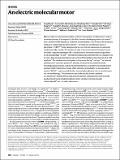Files in this item
An electric molecular motor
Item metadata
| dc.contributor.author | Zhang, Long | |
| dc.contributor.author | Qiu, Yunyan | |
| dc.contributor.author | Liu, Wei-Guang | |
| dc.contributor.author | Chen, Hongliang | |
| dc.contributor.author | Shen, Dengke | |
| dc.contributor.author | Song, Bo | |
| dc.contributor.author | Cai, Kang | |
| dc.contributor.author | Wu, Huang | |
| dc.contributor.author | Jiao, Yang | |
| dc.contributor.author | Feng, Yuanning | |
| dc.contributor.author | Seale, James S W | |
| dc.contributor.author | Pezzato, Cristian | |
| dc.contributor.author | Tian, Jia | |
| dc.contributor.author | Tan, Yu | |
| dc.contributor.author | Chen, Xiao-Yang | |
| dc.contributor.author | Guo, Qing-Hui | |
| dc.contributor.author | Stern, Charlotte L | |
| dc.contributor.author | Philp, Douglas | |
| dc.contributor.author | Astumian, R Dean | |
| dc.contributor.author | Goddard, William A | |
| dc.contributor.author | Stoddart, J Fraser | |
| dc.date.accessioned | 2023-01-25T11:30:03Z | |
| dc.date.available | 2023-01-25T11:30:03Z | |
| dc.date.issued | 2023-01-12 | |
| dc.identifier | 283099369 | |
| dc.identifier | 5195e897-2419-4323-83e9-557f2d1589d7 | |
| dc.identifier | 36631649 | |
| dc.identifier | 85146141085 | |
| dc.identifier | 000955880900010 | |
| dc.identifier.citation | Zhang , L , Qiu , Y , Liu , W-G , Chen , H , Shen , D , Song , B , Cai , K , Wu , H , Jiao , Y , Feng , Y , Seale , J S W , Pezzato , C , Tian , J , Tan , Y , Chen , X-Y , Guo , Q-H , Stern , C L , Philp , D , Astumian , R D , Goddard , W A & Stoddart , J F 2023 , ' An electric molecular motor ' , Nature , vol. 613 , no. 7943 , pp. 280-286 . https://doi.org/10.1038/s41586-022-05421-6 , https://doi.org/10.1038/s41586-022-05421-6 | en |
| dc.identifier.issn | 0028-0836 | |
| dc.identifier.other | Jisc: 861598 | |
| dc.identifier.other | pmc: PMC9834048 | |
| dc.identifier.other | pii: 10.1038/s41586-022-05421-6 | |
| dc.identifier.other | ORCID: /0000-0002-9198-4302/work/127573471 | |
| dc.identifier.uri | https://hdl.handle.net/10023/26828 | |
| dc.description | Funding: The computational investigations at California Institute of Technology were supported by National Science Foundation grant no. CBET-2005250 (W.-G.L. and W.A.G.). | en |
| dc.description.abstract | Macroscopic electric motors continue to have a large impact on almost every aspect of modern society. Consequently, the effort towards developing molecular motors that can be driven by electricity could not be more timely. Here we describe an electric molecular motor based on a [3]catenane , in which two cyclobis(paraquat-p-phenylene) (CBPQT4+) rings are powered by electricity in solution to circumrotate unidirectionally around a 50-membered loop. The constitution of the loop ensures that both rings undergo highly (85%) unidirectional movement under the guidance of a flashing energy ratchet , whereas the interactions between the two rings give rise to a two-dimensional potential energy surface (PES) similar to that shown by F0F1ATP synthase . The unidirectionality is powered by an oscillating voltage or external modulation of the redox potential . Initially, we focused our attention on the homologous [2]catenane, only to find that the kinetic asymmetry was insufficient to support unidirectional movement of the sole ring. Accordingly, we incorporated a second CBPQT4+ ring to provide further symmetry breaking by interactions between the two mobile rings. This demonstration of electrically driven continual circumrotatory motion of two rings around a loop in a [3]catenane is free from the production of waste products and represents an important step towards surface-bound electric molecular motors. | |
| dc.format.extent | 7 | |
| dc.format.extent | 7938875 | |
| dc.language.iso | eng | |
| dc.relation.ispartof | Nature | en |
| dc.subject | QD Chemistry | en |
| dc.subject | DAS | en |
| dc.subject | MCC | en |
| dc.subject.lcc | QD | en |
| dc.title | An electric molecular motor | en |
| dc.type | Journal article | en |
| dc.contributor.institution | University of St Andrews. School of Chemistry | en |
| dc.contributor.institution | University of St Andrews. Biomedical Sciences Research Complex | en |
| dc.contributor.institution | University of St Andrews. EaSTCHEM | en |
| dc.identifier.doi | https://doi.org/10.1038/s41586-022-05421-6 | |
| dc.description.status | Peer reviewed | en |
| dc.identifier.url | https://www.webofscience.com/api/gateway?GWVersion=2&SrcApp=pure_st-andrews_wos_starter&SrcAuth=WosAPI&KeyUT=WOS:000955880900010&DestLinkType=FullRecord&DestApp=WOS | en |
This item appears in the following Collection(s)
Items in the St Andrews Research Repository are protected by copyright, with all rights reserved, unless otherwise indicated.

